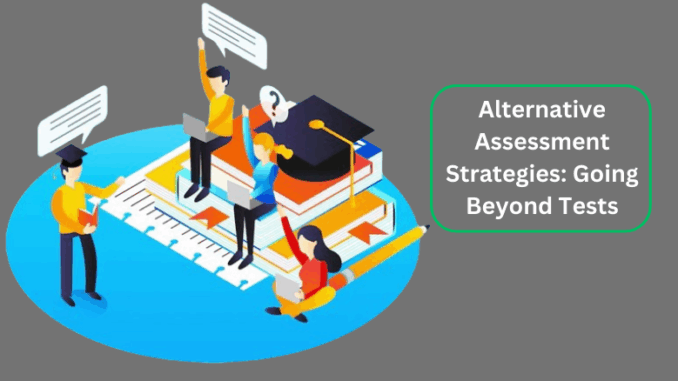
The traditional exam has long been the cornerstone of academic assessment, a standardized method for measuring knowledge, performance, and progress. Yet as education evolves to meet the demands of a rapidly changing world, the limitations of exams are becoming increasingly apparent. Exams often emphasize memorization over understanding, speed over depth, and conformity over creativity. They provide a snapshot of performance under pressure but fail to capture the nuances of learning, the diversity of student strengths, and the complexity of real-world problem-solving. The future of assessment is moving beyond exams, embracing more holistic, dynamic, and personalized approaches that reflect how people truly learn and apply knowledge.
One of the most compelling shifts in assessment is the growing emphasis on formative evaluation. Instead of waiting until the end of a term to measure learning, educators are integrating assessment into the learning process itself. This means using feedback, reflection, and iterative tasks to guide students toward deeper understanding. For example, a business school might replace a final exam with a semester-long project where students develop a marketing strategy for a real company. Along the way, they receive feedback from peers, instructors, and even industry professionals, refining their ideas and demonstrating growth. This approach not only assesses knowledge but also cultivates skills like collaboration, critical thinking, and adaptability—traits that are essential in today’s workforce.
Technology is playing a pivotal role in reshaping assessment. With digital platforms, educators can track student engagement, analyze patterns in performance, and tailor instruction to individual needs. Adaptive learning systems adjust the difficulty and content based on how a student responds, providing a personalized experience that traditional exams cannot offer. In corporate training environments, simulations and gamified assessments allow employees to demonstrate competencies in realistic scenarios. A sales associate might navigate a virtual customer interaction, making decisions that reflect their understanding of product knowledge, communication skills, and ethical considerations. These assessments are immersive, contextual, and far more indicative of actual ability than a multiple-choice test.
Portfolios are another powerful alternative gaining traction. By compiling a body of work over time, students and professionals can showcase their learning journey, creativity, and problem-solving capabilities. A portfolio might include written reflections, design prototypes, data analyses, or multimedia presentations. It tells a story of development and achievement that is both authentic and multidimensional. In business settings, portfolios can be used to assess leadership potential, innovation, and strategic thinking. They provide a richer, more nuanced picture than a single exam score, and they encourage individuals to take ownership of their learning and growth.
Peer and self-assessment are also becoming integral to modern evaluation strategies. When learners assess each other’s work, they engage in critical analysis, articulate feedback, and gain insight into different perspectives. Self-assessment fosters metacognition—the ability to think about one’s own thinking—which is crucial for lifelong learning. In a business context, these practices translate into performance reviews, 360-degree feedback, and reflective goal-setting. They promote accountability, empathy, and continuous improvement, aligning assessment with the values of contemporary organizations.
The shift beyond exams also reflects a broader philosophical change in how we define success. Instead of measuring what someone knows at a fixed point in time, we’re beginning to value how they learn, adapt, and contribute. This is especially relevant in industries where innovation and agility are key. A tech startup, for instance, might assess a candidate not by their academic credentials but by their ability to solve a coding challenge, collaborate on a product sprint, or present a compelling pitch. These assessments are dynamic, experiential, and aligned with the realities of the job.
Of course, moving beyond exams presents challenges. Standardized tests offer consistency, scalability, and a clear benchmark for comparison. Alternative assessments require more time, training, and resources to implement effectively. They demand a shift in mindset—from educators, employers, and learners alike. But the benefits are substantial. By embracing diverse methods of evaluation, we can create systems that are more inclusive, equitable, and reflective of individual potential. We can recognize different kinds of intelligence, support varied learning styles, and prepare people not just to pass tests, but to thrive in complex, unpredictable environments.
In the end, the future of assessment is not about abandoning exams entirely but about expanding our toolkit. It’s about recognizing that learning is a process, not a product, and that assessment should illuminate that process rather than constrain it. As education and business continue to intersect, the need for meaningful, authentic evaluation will only grow. By moving beyond exams, we open the door to richer insights, deeper engagement, and more empowered learners and professionals. The question is no longer whether we should rethink assessment—it’s how boldly we’re willing to reimagine it.